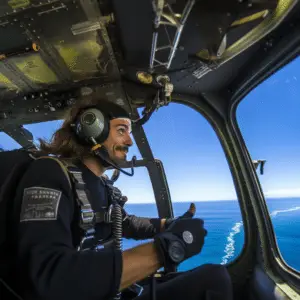Diving is a fun and safe activity if you have the right information and equipment. Make sure your wetsuit, snorkeling goggles, and breathing apparatus are in good condition. When avoidable, many divers overlook dangers that endanger themselves and their fellow drivers. Many diving innovations demonstrate the industry’s creativity. Prescription goggles solved the scuba diving with glasses dilemma. We still have no cure for decompression sickness. Unfortunately, there is no other option other than to wait to fly, however frustrating.
Flying after diving

Flying on an airplane after diving is quite dangerous. After a dive, your body requires a significant amount of time to decompress, so you should be taking it comfortable and relaxing. If you were to enter the pressurized space of a plane too soon after a dive, then it is likely that air bubbles will form and that you will suffer from decompression sickness. Symptoms include nausea and vomiting, serious aches and pains, and confusion, to name a few. With this in mind, it would be best to wait as long as possible before flying in order to avoid discomfort and illness in the unfortunate environment of a plane. Especially if you plan on being on a plane for a long haul flight, you will definitely want to avoid causing sickness when there isn’t much that can be done to remedy it.
How Does Flying After Diving Affect the Body?
Due to the pressurization that your body is subject to when you are diving, you must give your body ample time to decompress if you want to avoid illness. If you were to go straight from diving to an airplane, then it is likely that decompression sickness would occur, this can cause a number of different things such as sickness, dizziness, headaches, confusion, joint pain, and maybe even a rash in more extreme circumstances. This really isn’t a pleasant experience, so you must avoid going to a higher altitude too early when you have been diving recently. If you have any diving expeditions planned or booked, I would recommend that you make sure your flights are booked for a time that gives you the necessary rest period before you have to travel.
Are There Any Serious Risks Involved?
Although rare, decompression sickness can cause significant illness or death in divers. The biggest risk of pressured environments is mortality from severe illness. This is why it’s startling that so many divers are uninformed of the risks of high-altitude travel following diving. The risk derives from undersea and plane atmospheric pressure similarities. You are putting your body in a pressured, oxygen-deprived environment for too long. This atmosphere induces disease by forming bubbles. It’s not worth the danger, so I’d advise against it.
How to Safely Fly as a Scuba Diver

As indicated, you must wait the recommended time before flying after diving. The time you wait depends on the nature and duration of your diving. For ordinary, less intensive diving, wait 12 hours before flying. This provides the body time to decompress and minimizes the danger and severity of decompression sickness. If you dived for a long duration with decompression pauses, it may take 18–24 hours.
Diving is a very fun activity; however, it has the potential to turn into a serious medical problem if you are lenient with the recommended wait times between flying and diving. It is my recommendation that you leave at least twenty-four hours no matter how long of a dive you took part in to give the body more than enough time to recover properly and reduce the risk of sickness.

